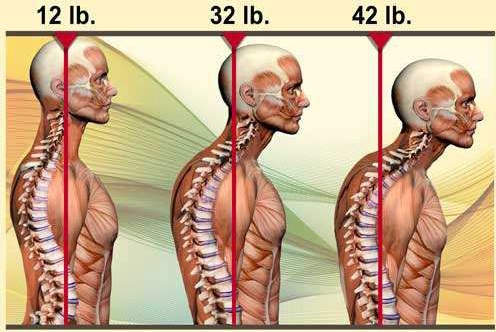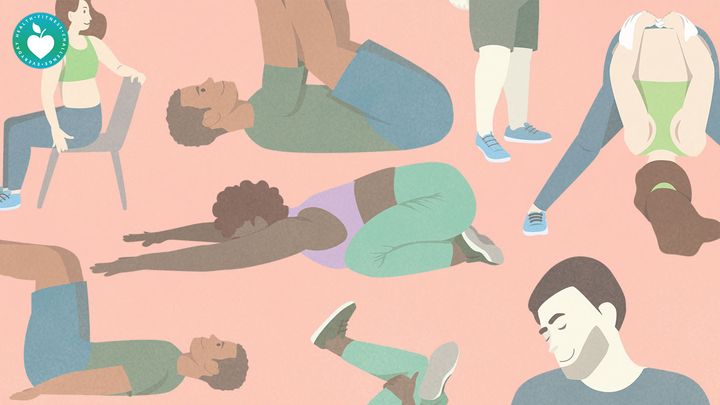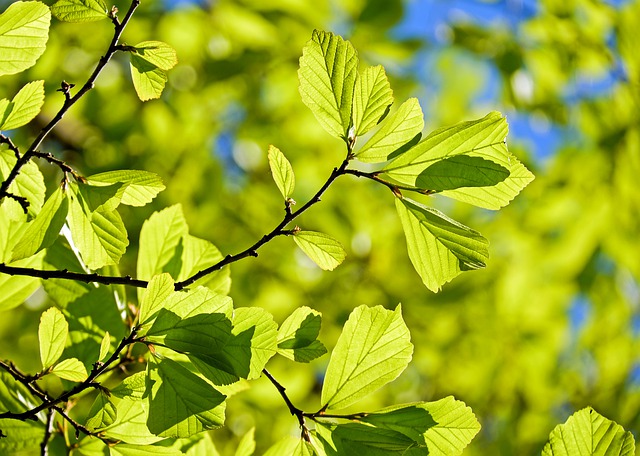I love this image that shows the weight of the human head in different postures. It's a great reminder not to get stuck in one position for too long. Oddly it also gives me fond memories of my dance days. I loved the mondern dance Limón technique; based on breath and using the dynamics of the weight of the body to initiate movement. Often the weight of the head was used to start movement, and it was breathtaking to see and feel just how much movement one drop of the head could initiate. Fascinating but I digress...
Do you ever adjust your rear view mirror when driving for a long period? I did as well until one day I had an epiphany about why we do this. I was stopped at a red light and happened to look over at the building next to me. The exterior walls were reflective and my first thought was, 'who is that poor, old woman with the horrible posture?' With a start I realized I was looking at my own reflection. The mirror did not need adjusting. It hadn't moved while I was driving, but I certainly did. I would start off with pretty good posture and then slouch down, caving in my chest and jutting my chin out. Now when I think of adjusting the mirror, I try to adjust my abysmal posture instead!
Here's an absurdly simple exercise you could try that stumped me at first: Cross you arms in front of your chest; now cross your arms the opposite way. Surprisingly difficult isn't it? I know it took me a few minutes to figure out how to do it. This is difficult for many of us because a lifetime of accumulated physical habits.
For example, do you cross your legs when you sit? Over time this can stress the hip and knee joints. Do you lean into one side of a chair or couch when reading or watching TV? Do you always carry a purse or bag on the same side? Or if you are a parent with a small child do you always carry them on the same hip? Try switching it up.
Our habits are comfortable, but over time these habits can shift our posture and eventually end up in a chronic pain situation. Knowing this, one of the best things you can do for yourself is to become aware of our daily habits. It can be startling to discover what our comforts are and what types of problems these complacent postures can create over long periods (years). These lifetime habits are difficult to notice, but when we take the time to recognize habitual postures that can cause stress and strain, applying small changes can make a difference.
Don't strain to correct your posture. In my clinic I have had to treat clients who were trying to adjust their posture and in so doing ended up in more pain. When we try to force change on our bodies there will often be a defensive reaction involving muscles becoming tight and spasmed. Becoming aware of our habits and slowly changing them over time gives the body an opportunity to accept and integrate the changes you are asking for.
I love it, but a lot of my clients seem annoyed when I suggest certain stretches to help address their aches and pains. I often ask if they stretch after a workout and am sometimes met with a rather disdainful look. I understand, as stretching can take a bit of time and patience as the results aren't immediately apparent. So why is stretching important?
Harvard Health Publishing from the Harvard Medical School has a succinct answer:
Stretching keeps the muscles flexible, strong and healthy, and we need that flexibility to maintain a range of motion in the joints. Without it, the muscles shorten and become tight. Then, when you call on the muscles for activity, they are weak and unable to extend all the way. That puts you at risk for joint pain, strains and muscle damage.
https://www.health.harvard.edu/staying-healthy/the-importance-of-stretching
What is the best way to stretch? Gently! It's important to never force any stretch to the point of pain. Move slowly into a stretch. This allows you to actually feel where the tension in the muscle group starts. Stop, breathe and hold the stretch for about 30 seconds. Do not bounce with the stretch as this can result in injuring the soft tissues. The time is slightly different for everyone, but you want to hold the stretch until you start to feel the area release a bit (usually around 30 seconds), hold for another breath or two and then ease out of the stretch. If you stretch an area once every day you will start to see and feel the difference over time.
It is best to warm up the muscles first before you stretch. Just 10 minutes of light exercise is enough to get blood and oxygen flowing into the different areas of the body, and then the tissues will naturally be more responsive to stretching.
Clients often ask me about starting yoga classes to help with stretching. I heartily recommend yoga, but it is important to do your research and find the style of yoga that works best for you. It is also important to know that yoga is not just about flexibility, but is incredibly strengthening as well. If yoga speaks to you, bravo! If not, just add a few stretches after your exercise routine; after a walk; a bike; or workout at the gym and your body will thank you.
"Nothing in the universe ever grew from the outside in." *
Meditating every day has probably kept me more sane than I know. I have noticed that when I skip meditation the day just doesn't flow the same. Or more likely the day flows as it should, but I don't.
There are thousands of research studies that have documented the benefits of meditation including: decreasing blood pressure; helping to balance blood sugar levels; helping to alleviate pain; reducing symptoms of depression and anxiety; and generally alleviating stress. In fact, Dr. Elizabeth Blackburn (who won a Nobel prize in medicine for her research on telomeres - the end part of a chromosome) has been investigating the effect of stress on telomeres with a particular emphasis on mindfulness meditation. *
Dr. Blackburn has found that stress will shorten the telomeres, which can increase signs of aging at a cellular level. Mindful meditation has been shown to lengthen the telomeres and this can positively affect health and longevity. Fascinating, yes?
I discovered meditation years ago when I was experiencing an acute episode of chronic pain. Sleep was just a fantasy, and having nothing to do except sit or lie on a wood floor I decided to finally try a short meditation. This was my eureka moment when, during that first meditation, I experienced a few moments without pain. Just that small amount of relief made a huge impression on my state of anxiety and mental stress and I have been hooked on meditating ever since.
Many people balk at the thought of trying meditation. What I like to point out is that there are many meditation options available and different ways of integrating it into our lives. Some of my clients have responded positively to sound meditation, some to a more zen focus on the breath, some to walking meditations and some to meditating in nature.
A story I heard recently was about a mother and housewife who told a Bhuddist monk that she literally had no time to meditate. He offered to come and see what a typical day was like for her, and at the end of the day he agreed that indeed she had no time for a formal meditation practice. So he suggested that every time she walked through a doorway she could pause for a moment to take a deep breath.
At the end of the day all these moments of pause can help to decrease stress and feel more connected to the self. Often it is this type of small change in habit that can help the most.
So I urge you to try it out. Find a meditation style that speaks to you, and feel free to integrate it in a way that works best for you.
* Wagamese, Richard EMBERS One Ojibway's Meditations, p 23,Douglas & McIntyre, 2016
* Blackburn, Elizabeth The Telomere Affect: A Revolutionary Approach to Living Younger, Healthier, Longer, Grand Central Publishing, Hachette Book Group, 2017
Sleep - it can be a faraway dream for many of us. A restful sleep can be a frustratingly rare thing to experience. A few years back I went to a lecture about sleep with a noted naturopath and what she shared was very helpful. Apparently one of the vital things needed for achieving sleep is darkness in the bedroom.
I thought I had all that wrapped up. We have no screens in the bedroom and I put up blackout curtains because of a rather horrible streetlight glare. I was patting myself on the back until she asked if we could see the furniture in our room at night with the lights turned off. We have some light from the window in the hallway streaming into the bedroom because of course, the door is open for the dog to come and go. Did I need to buy blackout curtains for all our windows? Did I need to move to a dark sky preserve in the country? This line of thinking was quickly going from unaffordable to slightly ridiculous. Then she mentioned using a mask - the least expensive and easiest way to achieve the level of darkness necessary for a good sleep.
That very night I went home and found an old mask wadded up at the back of a drawer. My husband had a questioning look on his face, but on it went and I had a deliciously deep sleep that night. So simple and yes, so satisfying.
Why is sleep important? Without decent sleep the body just doesn't function well. Lack of sleep can decrease immune function; increase blood sugar levels; increase pain levels and decrease your ability to focus and take in new information. Not to mention the obvious fatigue and emotional factors married to that.
So if you haven't tried a sleep mask give it a go and hopefully those faraway dreams will become your new reality. As Ovid's famous quote states: "Take rest; a field that has rested gives a bountiful crop."
I love my dentist! Don't get me wrong, having dental work done is a necessary evil close to the bottom of my 'Oh God I have to do this' list, but she is brilliant. She explains everything clearly before she does something and she doesn't skirt around the pain issue. This last visit she was upfront that the needle insertion for freezing in this particular area of my jaw was going to be painful. Somehow that allowed me to steal myself and get through it because I was warned appropriately, and I'm enough of an adult to know it is temporary pain for the greater good. Also, she now has a screen on the ceiling. Normally I'd be somewhat snobbish and dismissive, but I'm over the moon about her latest technological add-on. She had nature videos playing and wow, did that help.
Usually I'm meditating as best I can through the pressure and noise of the drill and clinging onto the very technical conversation between her and her assistant, not understanding a thing they're saying, but somehow taking comfort that they seem so calm and this is just another routine day at the office. This time though was something akin to magic. As the nature videos unfolded in front of me I dove into the greenery of leaves and forests; I delighted in every bird that stopped by to preen or sip from a water source; and I fixated on the greenery again when the drilling was particularly harsh. And then it was over. I felt like a kid who gets rewarded with a lollipop. I half smiled - because freezing - and refrained from hugging her - because it's not that type of relationship. I wanted to explain all the science behind nature contemplation, but I was a good patient and got up to pay my bill.
Just to let you know looking at nature helps, even on screen. It helps to ease stress, and easing stress helps in any situation. There is so much more to being in nature that I could talk about, but if you are interested check out www.ecowisdom.ca. They are living their truth and offering nature based mindfulness practices in innovative and accessible programming.
Props to dentists, and kudos to my dentist for making this little stress so much more bearable.




